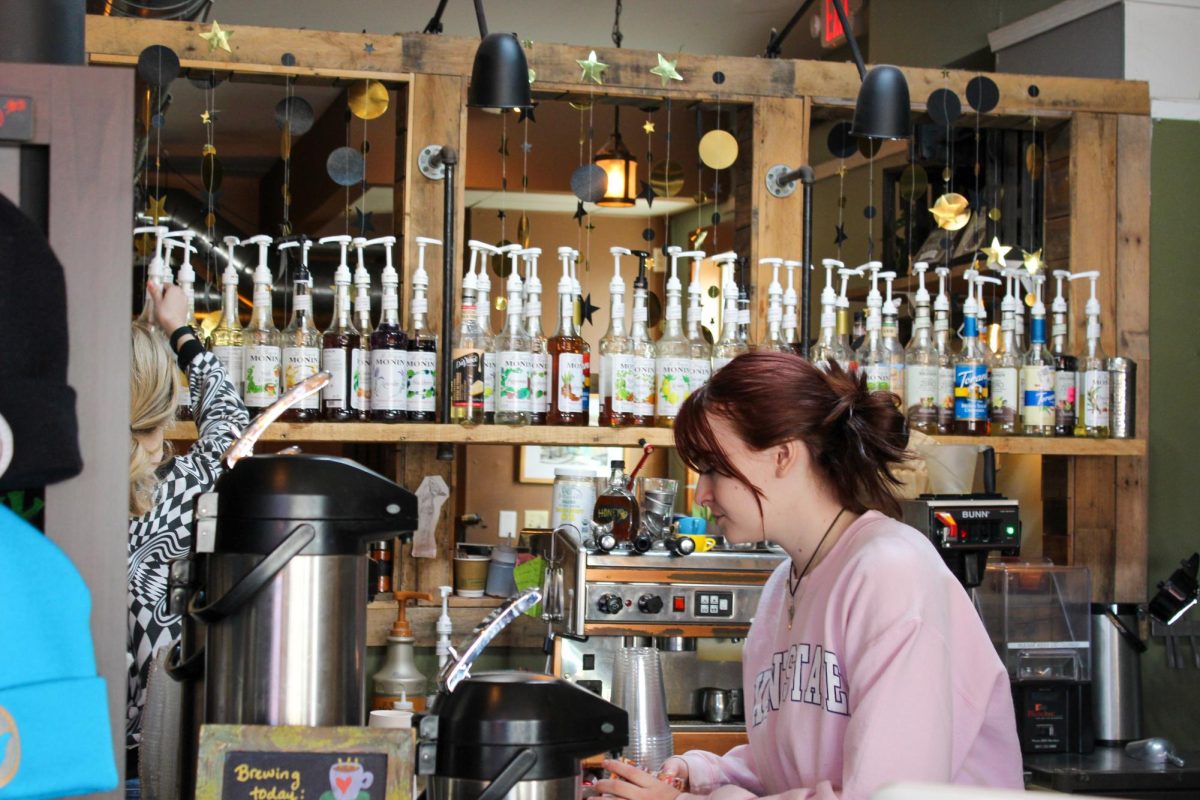Simplifying the difference between delegates and superdelegates
Balloons drop from the ceiling at the 2012 Republican National Convention in the Tampa Bay Times Forum, Thursday, August 30, 2012 in Tampa, Florida.
July 14, 2016
With the Republican National Convention fast approaching—and Cleveland gearing up for an influx of protesters and supporters—there is a lot to keep up with. It can be easy to just nod your head and agree when it comes to confusing political jargon.
But how much do we really know about the convention? As voters, citizens and observers of the convention and the election in general, many of us feel the importance of understanding what we’re all a part of.
That can be difficult, however, when we don’t understand the basics of the process. One of the most confusing and often-overlooked examples involve delegates, superdelegates and how they are selected.
By definition, a delegate is someone who is chosen or elected to “vote or act for” others—to represent them. In today’s democratic society, that is basically their purpose.
Delegates from each state are sent to both the RNC and Democratic National Convention to act as representation for voters, meaning that once at the convention, the delegates from each state vote for a presidential candidate for their party.
The first candidate to receive a certain, pre-set number of delegate votes wins the party’s nomination. The Republican candidate needs the majority of the 2,472 delegate votes at the convention in order to be nominated.
But how are the delegates who vote at the conventions actually selected? In order to determine who is chosen as a delegate, a primary or a caucus is held at the state level.
These are methods where voters choose candidates from each party, Democratic and Republican, to determine one candidate from each party who will be formally selected at the respective conventions. They are similar, and are often lumped together, but are very different processes for the same purpose.
In a primary, any registered voter can vote for a candidate. In a closed primary, voters can only vote within the party they are registered.
In an open primary, however, voters can choose any candidate they want to vote for, no matter their previous affiliations.
A caucus, on the other hand, is somewhat different in that it is more open and active than a primary. It’s a meeting where the attendees—all registered voters from the party that is holding the caucus—divide themselves into groups based on the candidate they support, and the number of people in support of them are counted.
Each state has a different way of selecting these delegates, and each has its own separate rules for which candidate earns the delegates at the convention.
In the Democratic Party, delegates are awarded to candidates proportionate to the number of votes they received in the primaries or caucuses. The Republicans, however, vary by state—either utilizing the proportional method, or a winner-takes-all method, in which the candidate with the most votes wins all of the state’s delegates at the convention.
In some states, delegates must vote for the winner of the primary at the convention. These are called pledged delegates.
In others, they may still vote for another candidate—these delegates are unpledged. Another form of delegate who is free to support any candidate are superdelegates.
Superdelegates are simply more high-profile delegates, and include elected officials or members of the U.S. House of Representatives and Senate. These superdelegates are only part of the Democratic election process, however, and hold no part in the Republican nomination.
So, although the phrase may be thrown about on television, these delegates are not as relevant to the RNC.
In short, delegates represent our votes. Our government is a democracy, but we are not a direct democracy, where the people directly control governmental decisions. We are, rather, a representative democracy—represented by officials who we have elected to act in our interest and represent our ideals.
Delegates are an example of this platform, as they represent our choice in presidential candidates—with varying degrees of personal autonomy.
















